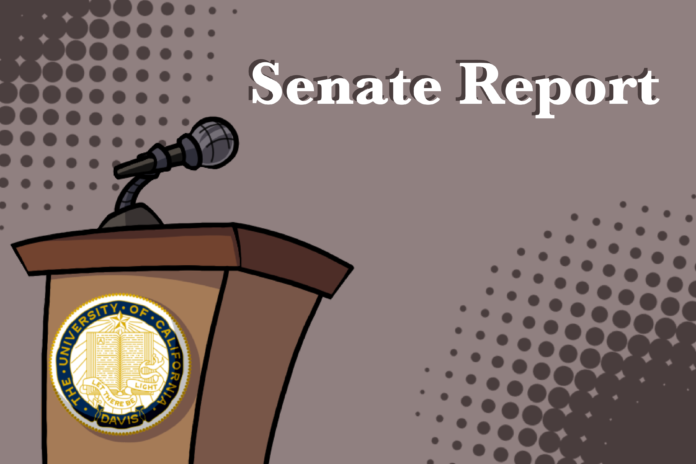Presentation highlights ways students are impacted by upcoming census
ASUCD Vice President Shreya Deshpande called the Jan. 16 Senate meeting to order at 7:09 p.m. Senators JB Martinez and Juan David Velasco arrived late.
The meeting began with a presentation from Jenny Tan, the communications coordinator for Yolo County, regarding the upcoming 2020 Census. The presentation highlighted the ways in which students at UC Davis will be impacted by the results of this year’s upcoming Census.
Census data helps determine the amount of federal funding for state programs that directly impact students like CalFresh, employment services, mental health and social services, homelessness outreach and more. The Census also determines the number of electoral votes allocated to California in upcoming elections, including the presidential election happening in November. Due to lack of participation in the Census, there is fear that California will lose one of these electoral seats. Tan also stressed that all individuals living in California should register for the Census, regardless of citizenship status. There is no citizenship question on the Census — even international students should be counted.
“College students are some of the hardest people to count because there’s a miscommunication,” Tan said. “Most students think they’re getting counted back home.”
Tan stated that this is not the case — students attending college should register for the Census where they attend school.
“If you miss out counting one to two people, that’s thousands of dollars that your community is missing out on,” Tan said.
After the report, the Senate moved into ex-officio reports. Elena DeNecochea, chair of the Gender and Sexuality Commission, announced the addition of four new members to the commission and addressed plans to establish an additional task force to focus specifically on different California Senate bills that impact women and deal with gender issues. DeNocochea views this potential task force as a way to engage additional students in local efforts to advance gender equality.
The Senate moved into consideration of old legislation.
Among those discussed, SB #14 would amend language in the bylaws to allow the Entertainment Council greater flexibility when utilizing their large show reserves. In the past, due to the language of the Bylaws, it was unclear what the funds could be utilized for. Kimya Khayat, director of the Entertainment Council, spoke more about the bill’s necessity for Entertainment Council to have better access to its own funds. The bill passed without objections.
SB #18, would help solidify ASUCD’s transition to a paperless organization. This bill outlines Student Judicial Affairs’ commitment to help the association make this transition. Senators debated sacrificing the accessibility of using paper documents to help visitors navigate Senate agendas for the environmental benefit of going paperless. SB #18 also passed without objections.
Written by: Ally Russell — campus@theaggie.org




